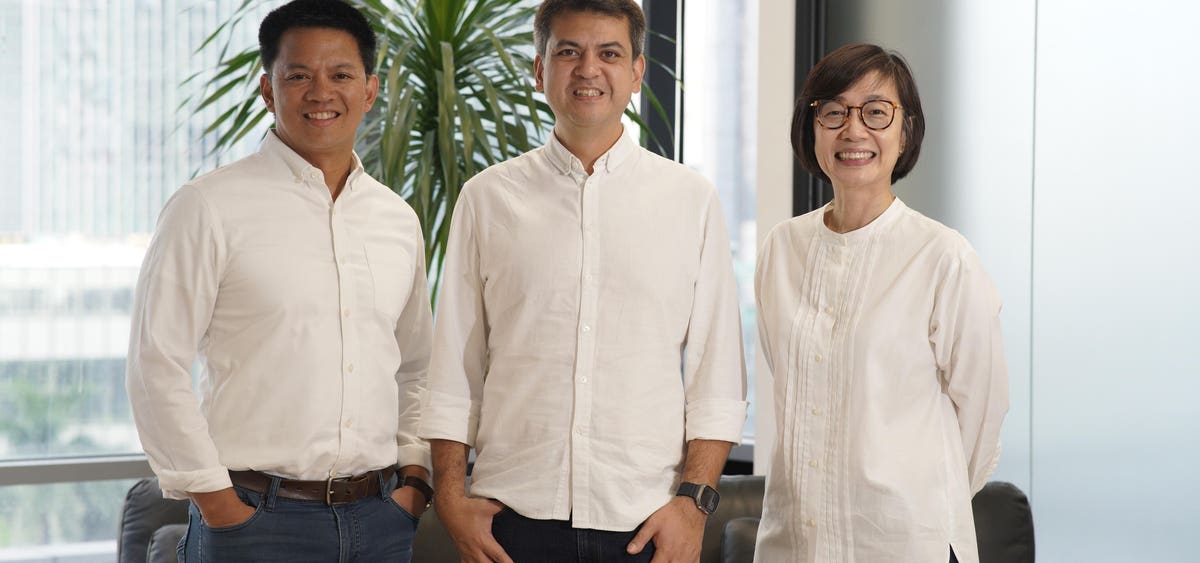The race is on to secure exposure to the burgeoning start-up ecosystem in the Philippines. One of the fastest-growing markets in South-East Asia has attracted venture capitalists from all around the world – start-ups in the Philippines raised a record $1 billion of funding in each of the past two years according to a report from Foxmont Capital Partners and BCG. Now a home-grown challenger, Kaya Founders, is raising the stakes with a new $12 million funding facility aimed at technology-enabled start-ups in the country.
Kaya was founded in 2021 by veteran entrepreneurs and angel investors Paulo Campos, Lisa Gokongwei-Cheng and Constantin Robertz, and has already backed more than 30 companies across a range of sectors. Campos, who is the managing general partner of the firm, believes there is an exciting window of opportunity in the Philippines right now.
“This can be a golden age for start-ups if we can help this army of entrepreneurs that has sprung up in the country,” he says. “Over the past couple of years, we’ve seen the emergence of a set of dynamic founders with fantastic ideas, but they need support – with funding, but also across the whole start-up ecosystem.”
Campos points to the structural advantages enjoyed by the Philippines. It has a large population with a median age of just 25 – the youngest in South-East Asia – and growing wealth; GDP per capita in the country is expected to more than double by 2030. The result is growing demand for digital products – and products and services delivered digitally – from a technology-literate customer base.
“The Covid-19 pandemic has proved to be a real catalyst,” Campos adds, pointing out that the Philippines imposed tougher restrictions for longer than many of its neighbours. “We’ve seen people’s behaviours change very markedly as a result; they’re much more likely to shop online, but also to work and manage their lives digitally.”
Many of the new generation of start-ups are focused on exploiting those changing behaviours. That includes new ventures in sectors such as ecommerce, but also in financial services, digital health, business-to-business services, and other niches where technology is a key enabler.
“Most of the entrepreneurs behind these ventures are first-time founders,” adds Campos. “They lack experience so they need more than just financial support – even the emotional support that we can provide is going to be critical in helping them to make a success of these start-ups.”
Zaya certainly isn’t the only venture capital fund offering to work with business founders and entrepreneurs in this way. Alongside global investors, a number of regional players have entered the Philippines market over the past year or so. While venture capital investment worldwide dropped last year, Foxmont and BCG report that: “the Philippine investment landscape continued to grow, with 2022 being an all-time high in terms of funds raised, up 7% from the year prior”.
However, Campos and his colleagues at Kaya believe a home-grown investor can really help founders from the very start of their journeys. The $12 million it has raised is the first stage of its latest fund-raising exercise, with Kaya aiming to reach $25 million. The cash is coming from institutional investors, family offices, high-net-worth individuals and a number of prominent existing entrepreneurs.
The money will be split across two funds. First, Kaya’s Zero to One Fund is a pre-seed vehicle that will focus on accelerating ventures even while they remain on the drawing board, partnering with founders who may not yet have gone to market. At the same time, the One to Ten Fund will invest in more mature opportunities ranging from seed stage to series A.
Campos stresses the team’s local knowledge and experience. “These funds are the culmination of what each of us have individually been doing for years as some of the most active angel investors in the Philippines,” he says. The founders have previously backed early start-up success stories in the country including the Good Glamm Group, Kumu, Dali, and Edamama.
With support, Campos is convinced the next generation of start-ups can follow their lead, particularly with a fair economic wind. S&P Global Market Intelligence says: “The Philippines economy is forecast to continue to grow rapidly, with total GDP doubling from $400 billion in 2022 to $800 billion in 2030 – a key growth driver will be rapid growth in private consumption spending, buoyed by strong growth in urban household incomes.”
Read the full article here




